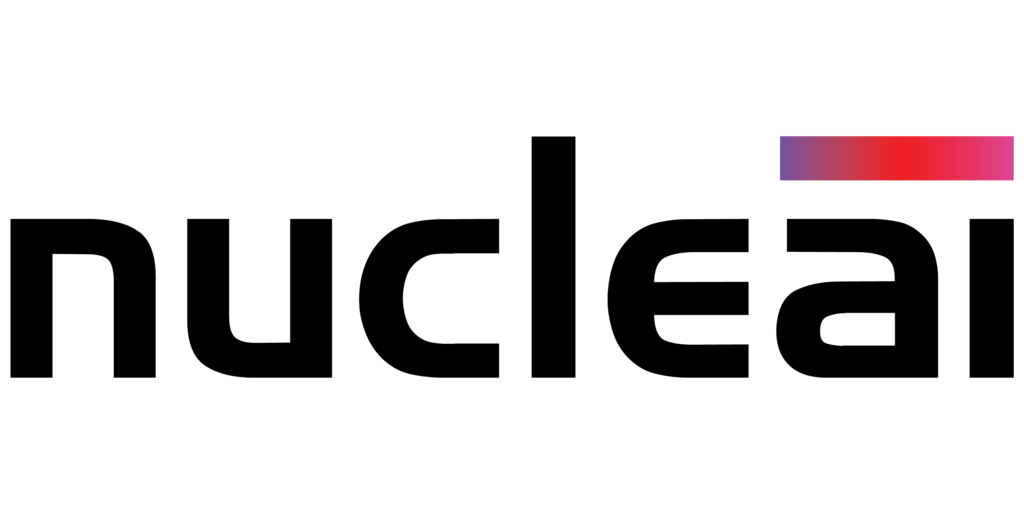Automated normalization of multiplex imaging replaces manual methods to reduce variability, enabling biopharma researchers to accurately identify novel spatial biomarkers and scale up biomarker validation across large cohorts
At AACR, Nucleai will showcase new spatial data interpretation tools and posters highlighting Nucleai’s platform for derisking ADC and immunotherapy drug development
CHICAGO--(BUSINESS WIRE)--Nucleai, an AI-powered spatial biomarker and diagnostics company, today announced the launch of its deep learning model that automates the normalization of high-plex imaging data, a foundational step within the spatial proteomics workflow. Nucleai offers tools that support spatial profiling of protein expression and immune cell interactions, including cell architecture and neighborhoods, to support the development of antibody-drug conjugates (ADCs), bispecifics, and immunotherapies. Designed to rapidly analyze dozens of protein markers in a single image, the new model is almost 20 times faster than manual methods and automatically adjusts protein signal intensities within and across patients to compare expression levels with greater precision.


Manual normalization methods are slow, inconsistent, and produce varying results across laboratories and individual users. Automating this step increases the reproducibility of spatial proteomics studies and supports larger-scale analysis across diverse datasets, enhancing the predictive power of clinical studies and the development of personalized therapies, such as ADCs, bispecifics, and immunotherapy. With Nucleai’s deep learning model, biopharma researchers can now scale their multiplex immunofluorescence (mIF) analyses reliably, identifying biomarker signatures more accurately and cross-validating them among multiple cohorts and study sites. The Nucleai team has been testing the model with early-access biopharma customers, and thus far, the results have been promising. The model runs in just a few minutes and can scale across tens or hundreds of mIF samples within the same timeframe and with similar performance as manual methods.
“Emerging therapies such as ADCs and bispecifics involve complex mechanisms of action, requiring a deeper understanding of the cancer biology driving patient responses. By integrating spatial proteomics with AI, researchers can study each tumor sample with stunning precision and depth. This approach allows rapid and reliable identification of the cellular interactions within the tumor microenvironment that can eventually turn into clinically relevant biomarkers and predictive signatures,” said Avi Veidman, CEO of Nucleai. “This latest automated deep learning model shows our continued commitment to accelerating the field of spatial biology. With scalability and reproducibility at its core, the platform enables deeper insights into patient-specific cancer biology, bringing it closer to clinical applications and enhancing the impact of next-generation cancer therapies.”
“Automating the normalization process in mIF addresses a major pain point by cutting down hours of tedious measurements that researchers have traditionally performed manually. Nucleai is streamlining the spatial proteomics pipeline, enabling faster actionable insights,” said Arutha Kulasinghe, PhD, Associate Professor, Frazer Institute, University of Queensland, Australia.
Supporting ADC and Immunotherapy Development with AI-Powered Spatial Proteomics
The company will present two posters at the American Association for Cancer Research (AACR) Annual Meeting 2025, highlighting use cases for Nucleai’s platform in ADC and immunotherapy development:
Title: AI-powered spatial inference platform for qualifying ADCs and multispecific therapeutic targets
Summary: Nucleai’s platform analyzed more than 1.7 million cells from lung, gastric, and colorectal cancers, precisely profiling tumor antigens and immune interactions. The platform evaluated intended therapeutic targets, combinations of targets, and off-target expression, directly supporting more reliable and safer drug development pathways.
Presenter: Jason Reeves
Session: PO.CL01.18 - Spatial Proteomics and Transcriptomics 1
Date: April 27, 2025, 2:00 PM - 5:00 PM
Link to abstract: https://www.abstractsonline.com/pp8/#!/20273/presentation/5257
Title: Tumor microenvironment profiling of multiplexed images in head and neck cancer reveals spatial features associated with immunotherapy response
Summary: Using Nucleai’s platform, researchers analyzed biopsies from 65 patients, mapping cellular interactions and metabolic states within tumors. The analysis revealed distinct spatial metabolic patterns correlated with patient responses, providing insights critical for improving the effectiveness of immunotherapy.
Presenter: Ettai Markovits
Session: PO.TB10.05 - Where's Waldo: Spatial Complexity of the Tumor Microenvironment 1
Date: April 27, 2025, 2:00 PM - 5:00 PM
Link to abstract info: https://www.abstractsonline.com/pp8/#!/20273/presentation/1801
New Spatial Analysis Tools Translate Complex Data into Actionable Insights
Nucleai will also preview two new tools, currently in development, for interpreting complex spatial proteomics data.
The first is an interactive viewer and analysis studio that allows users to navigate cell types, marker expression, and spatial neighborhoods across tissue regions, providing a more intuitive review of key patterns and findings. This enables researchers to explore complex spatial data independently without relying on specialized support.
The second is an AI-powered spatial proteomics agent that automatically generates concise, comprehensive actionable reports from spatial datasets and study results. Such a tool could simplify complex data interpretation to rapidly inform drug development decisions such as patient stratification or combination strategies.
These two new features could give translational teams in biopharma faster access to actionable insights and will be demonstrated at Nucleai’s booth (#2650) during the AACR Annual Meeting 2025 in Chicago. For more information about Nucleai’s platform for spatial proteomics, visit nucleai.ai/aacr2025.
About Nucleai
Nucleai is a leading AI-powered spatial biomarker and diagnostics company, advancing drug development and clinical decision-making through the analysis of cellular interactions and spatial relationships within tissue samples. By adapting geospatial analytical methods initially developed for military purposes, Nucleai applies these capabilities to biospatial analysis in oncology. This enables precise mapping of cellular interactions within tissue samples, which is needed for developing complex therapeutics such as bispecific antibodies and antibody-drug conjugates (ADCs). Nucleai’s approach mitigates risks in drug development by improving the accuracy of biomarker identification, optimizing patient selection, and ultimately increasing the probability of clinical success. The company is backed by investors including Section 32, Sanofi Ventures, Vertex Ventures, M Ventures, and Debiopharm Innovation Fund. For more information, visit www.nucleai.ai.
Contacts
Media Contact
Consort Partners for Nucleai
nucleai@consortpartners.com




